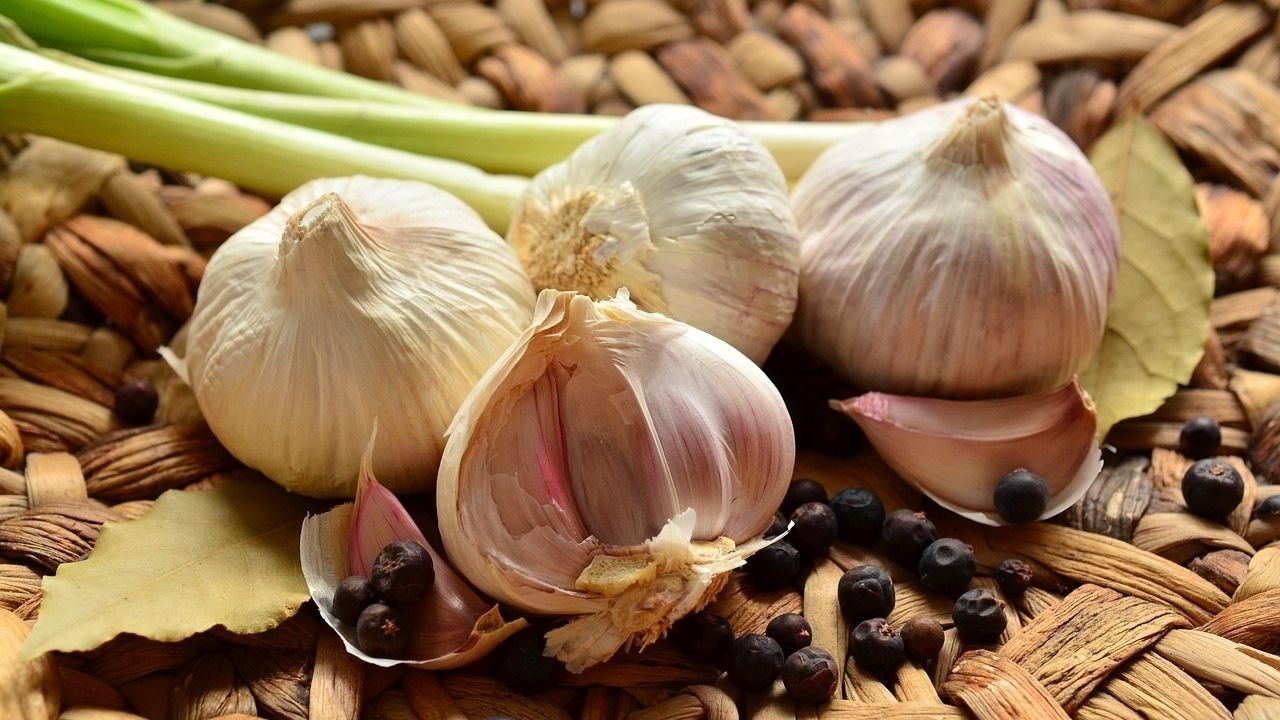
Historical Significance
Nutritional Value of Garlic
A. Essential Nutrients
B. Active Compounds
Garlic’s distinctive aroma and potential health benefits are attributed to its sulfur compounds, particularly allicin. Allicin has antibacterial, antifungal, and antioxidant properties, making it a truly remarkable ingredient.
Health Benefits of Garlic
A. Cardiovascular Health
B. Immune System Support
C. Antioxidant Effects
D. Digestive Health
Culinary Uses of Garlic
1. Flavor Enhancer
2. Versatile Ingredient
Tips for Incorporating Garlic into Your Diet
a. Fresh Garlic
b. Roasting Garlic
c. Flavor Pairings
Conclusion
It is generally safe for most but some individuals should use raw garlic with caution:
- People taking blood-thinning medications: It has blood-thinning properties, potentially increasing the effects of medications like warfarin. Be sure to consult a doctor before consuming it in large quantities.
- Individuals with digestive problems: Raw garlic may irritate the stomach and intestines, worsening conditions such as acid reflux, irritable bowel syndrome, and inflammatory bowel disease.
- For those undergoing surgery: Its blood thinning effect may interfere with surgery and treatment. Stop taking it at least two weeks before any scheduled procedure.
Consuming excessive garlic (usually more than 4 grams or 2 large cloves per day) is unlikely to harm a healthy liver in the short term. However, excessive consumption in individuals with pre-existing liver conditions such as hepatitis or cirrhosis may result in inflammation and liver damage.
Yes, you can drink water after eating raw garlic on an empty stomach. It’s a good idea! Water helps dilute its powerful compounds, potentially reducing its harshness on your digestive system.
Daily consumption of garlic (about 1-2 cloves) can provide many health benefits, some of which are:
- Boosting the Immune System: Contains allicin, a compound with antimicrobial and antiviral properties.
- Lowering blood pressure and cholesterol: Several studies show that garlic can have positive effects on heart health.
- Reduces inflammation: It has antioxidant properties that fight inflammation throughout the body.
However, consuming it in excess can have many side effects which include –
- Bad breath and body odor: Its pungent compounds can persist in your breath and sweat.
- Digestive disturbances: Raw garlic can irritate the stomach and intestines, causing heartburn, bloating, and diarrhea.
- Increased risk of bleeding: The blood thinning effect it contains may be problematic for some individuals.
For the best benefits and minimal losses, consider these tips:
- Cook it and eat it: Cooking reduces its hardness and also reduces the intensity of its smell and taste.
- Chop or finely chop it: This increases the surface area for allicin production, maximizing the health benefits.
- Add it at the end of cooking: high heat can reduce its beneficial compounds.
- Enjoy it raw in limited quantities: If you can tolerate it well, eating it raw in small quantities can provide you with many health benefits.